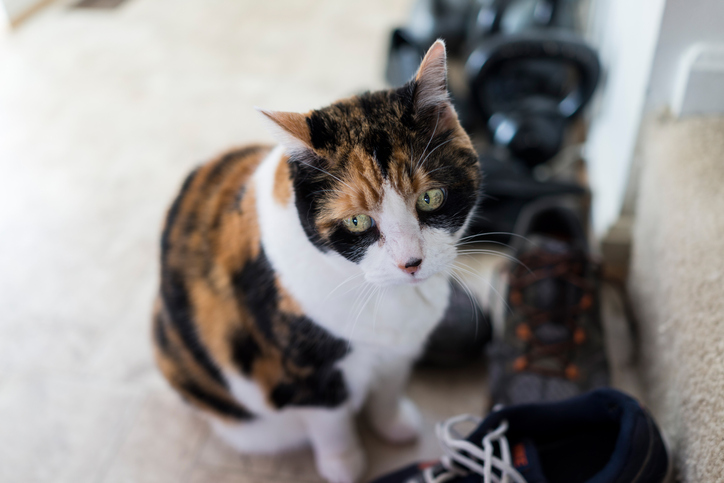
Do Cats Experience Separation Anxiety?
If you have a cat who seems to miss you when you’re not at home, you may wonder if they are experiencing separation anxiety. Dogs are known to suffer from this type of anxiety often, but what about cats? Can they become anxious when they’re left alone, too?
The short answer is yes, cats do experience separation anxiety. However, there’s more to learn about the way cats process separation and the symptoms they may display if they have separation anxiety, too. Read through the article below to find out more about cat separation anxiety and how it may be affecting your pet.
Do Cats Care When They’re Alone?
Yes! Studies have shown that cats experience higher levels of physical stress symptoms in the body when they can’t be near their human, and those levels decrease significantly when they are with their human family once again.
Cats are often considered to be uncaring or disinterested toward their human family members, but this isn’t true. Although cats don’t need as much constant attention as most dogs, they do connect and bond with their humans, and they feel unhappy when separated for too long.
What Causes Some Cats to Experience Separation Anxiety?
Not every cat will experience separation anxiety, and there are several factors that may play into this condition, too. Some of the most common causes of separation anxiety in cats include:
Having Only One Human Family Member
If you and your cat are the only ones in the household, they do not have anyone else to interact with when you aren’t at home. In this situation, a cat may be more likely to have separation anxiety because they associate boredom with separation, and both can become worse as a result.
Having No Other Pets Around
Households that have more than one pet typically do not notice separation anxiety in any of their pets as often as those that don’t. Cats may be less prone to separation anxiety if they have other cats or other types of pets in the home. However, some cats do not get along with other animals, so consider your individual cat’s needs before making this assumption.
Lack of Enrichment
If your cat is bored even when you are home, they may be more prone to separation anxiety. A cat needs to have physical and mental enrichment, so be sure to play with them often to help combat this problem.
Change in Routine
Cats who have recently experienced a routine change may be more likely to have separation anxiety than those who haven’t. If you’ve gone back to work after working from home, for example, your cat may have a tough time adjusting.
Female Cats
It is more likely for female cats to suffer from separation anxiety than male cats. However, just because there is a noticeable trend in this factor, that doesn’t mean your male cat won’t ever have separation anxiety. Consider other potential factors that may contribute to your pet’s anxiety as well.
Common Symptoms of Cat Separation Anxiety
Although each cat’s symptoms vary, there are several signs of separation anxiety you can look for, too. Learn how to recognize these symptoms early so you can decide when your cat needs to see a veterinarian for more assistance:
Destructive Behavior
One of the most common signs of separation anxiety in cats is destructive behavior. If your cat regularly shreds or otherwise destroys your furniture and belongings when you’re not at home, this is a classic sign that separation anxiety may be occurring.
Crying and Howling
Cats who are left alone may cry and yowl for long stretches of time. It’s not abnormal for cats to cry for a minute or two when they realize they’re alone, but any longer than this may indicate separation anxiety.
Urinating and Defecating Outside the Litter Box
Going to the bathroom in incorrect locations can be a very common sign of separation anxiety. However, you need to rule out any medical conditions that may be causing this behavior before deciding it is related to anxiety. Take your pet to the vet if they urinate or defecate outside the litter box more than once and without any visible reason (such as the box being too dirty).
Talk with Your Veterinarian About Cat Separation Anxiety
Now that you’ve had a chance to learn more about separation anxiety in cats, you can work to determine whether your feline friend may be suffering from this condition. If you determine that your cat does show some signs of separation anxiety, it’s important to provide lots of enrichment for them and ignore his attention-seeking as much as possible.
In some instances, cats may require medical help to treat their separation anxiety. Your vet can prescribe anti-anxiety medication to help your cat deal with being left alone.
Book an appointment online to talk with your Boston Veterinary Clinic team about your cat’s separation anxiety.